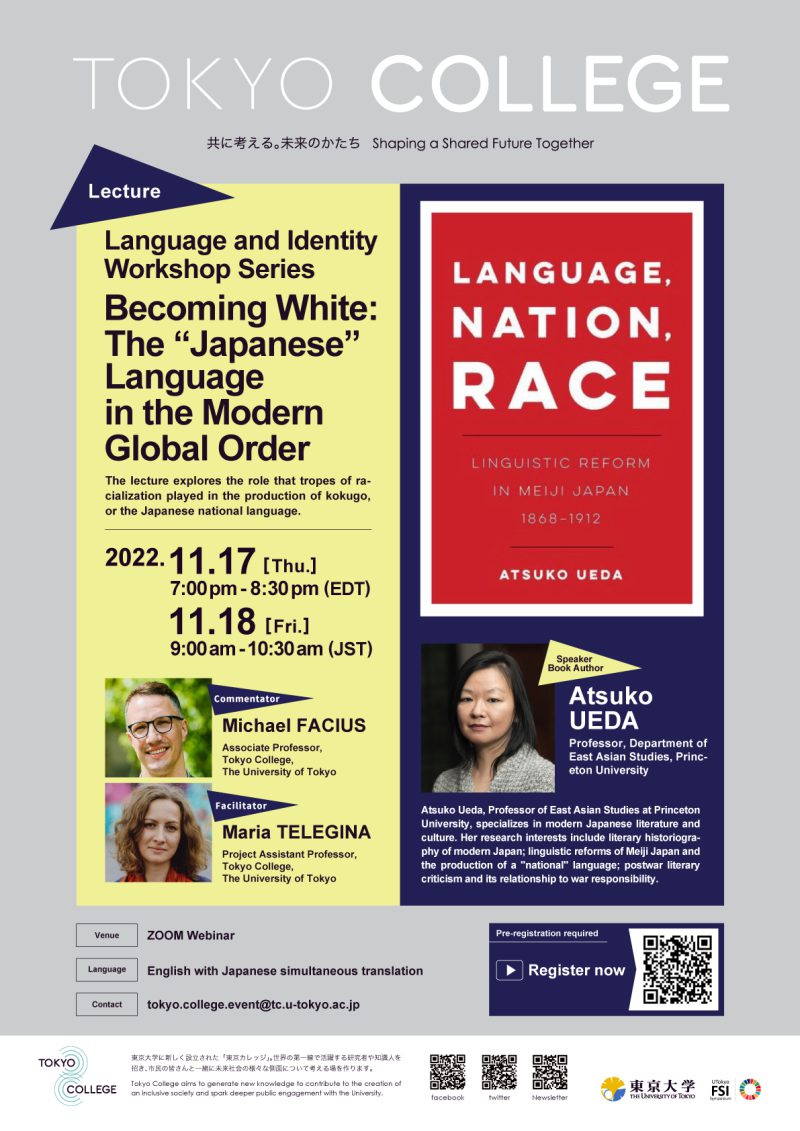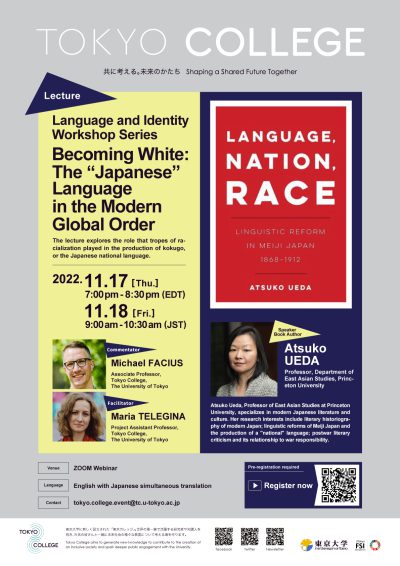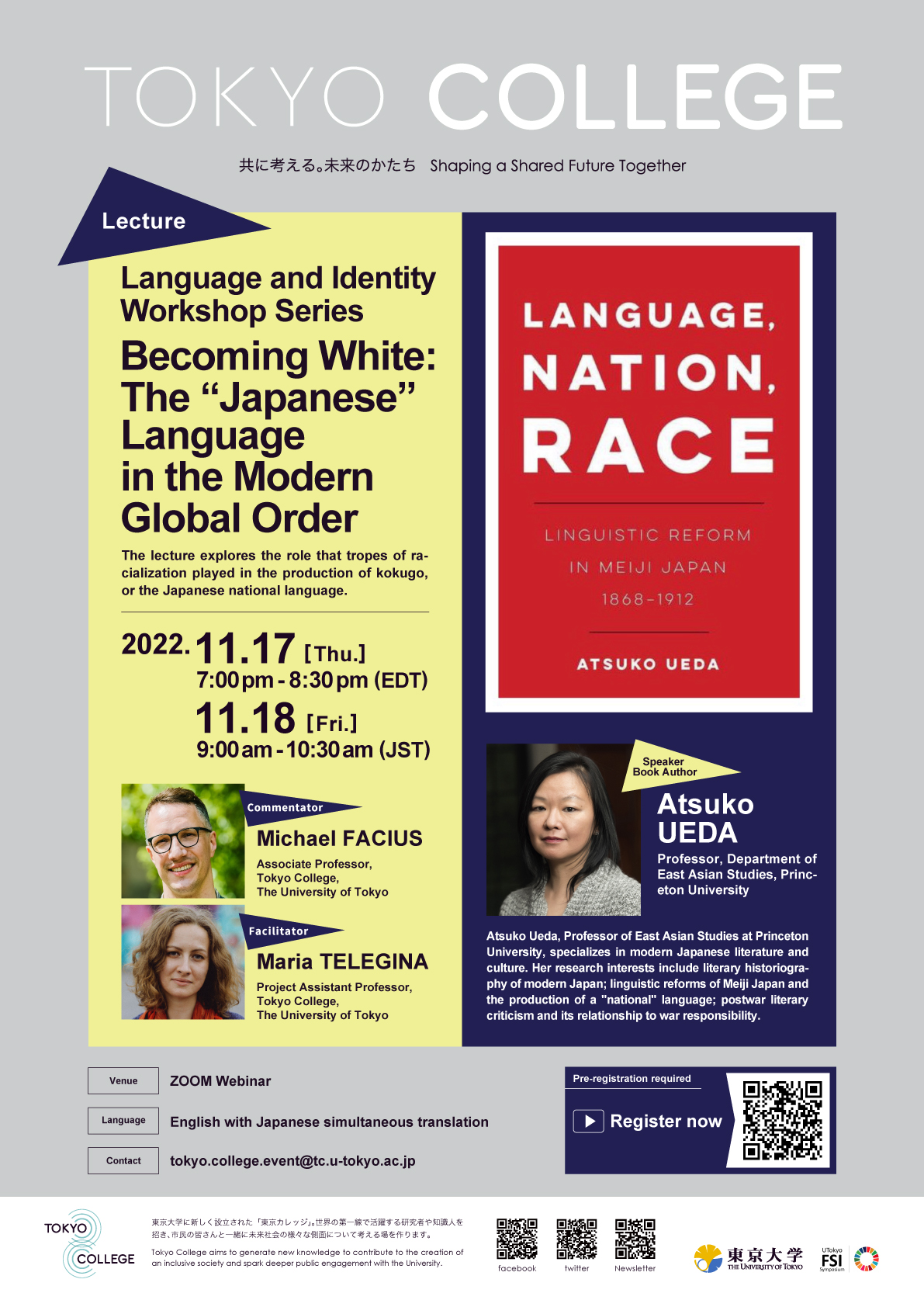Language and Identity Workshop Series: “Becoming White: The “Japanese” Language in the Modern Global Order”

| Date(s) | Friday, 18 November 2022 9:00 am - 10:30 am JST | Thursday, 17 November 2022 7:00 pm - 8:30 pm EDT |
|---|---|
| Venue |
Zoom Webinar (Register here) |
| Registration | Pre-registration required |
| Language | English (English-Japanese simultaneous translation available) |
| Abstract |
Language, Nation, Race explores the many language reforms at the onset of modernity in Japan, when the “national language” (kokugo) was produced in order to standardize the Japanese language. In the mid-to late-1800s, the literacy level was low, written and spoken languages were disparate, and multiple dialects existed, the disparity of which impeded basic communication among the inhabitants of the Japanese archipelago. Faced with the threat of Western colonialism, Meiji intellectuals proposed various reforms—whether it be the rejection of Chinese characters, the use of Romanized syllabic scripts, or even the adoption of English as the national language—to standardize the language in order to quickly educate the illiterate masses with new forms of knowledge imported from the West. This was a chaotic moment in the history of modern Japan. In this talk, I focus on Ueda Kazutoshi’s reform. I depart from prior studies of his reforms by specifically examining his tropes of racialization. Meiji was a race war. It is crucial to inscribe race in our investigation since no analysis of imperialism or nationalism is possible without the concept of race.
|
| Program |
Lecture: Atsuko Ueda(Professor, Department of East Asian Studies, Princeton University) Comments: Michael FACIUS (Associate Professor, Tokyo College, The University of Tokyo) Q&A |
| Speaker Profile |
Atsuko Ueda, Professor of East Asian Studies at Princeton University, specializes in modern Japanese literature and culture. Her research interests include literary historiography of modern Japan; linguistic reforms of Meiji Japan and the production of a “national” language; postwar literary criticism and its relationship to war responsibility. |
| Organized by | Tokyo College, The University of Tokyo |
| Contact | tokyo.college.event@tc.u-tokyo.ac.jp |
















